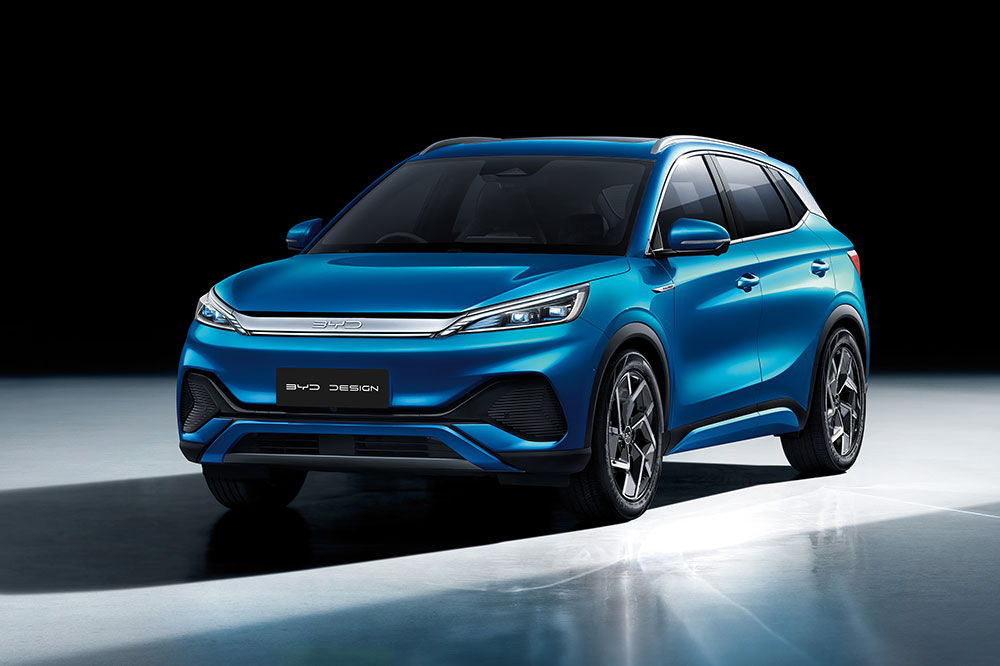Shift to electric vehicles gathers pace
Queensland saw a massive spike in the uptake of battery electric vehicles (BEVs) in 2023.

The Australian Automobile Association’s (AAA) EV Index shows that sales of BEVs in Queensland rose 177.05% from 2022 to 2023.
There were 18,551 BEVs sold in Queensland last year compared with 6,696 in 2022 – an increase of 11,855.
The AAA EV Index online data dashboard analyses all new light vehicle sales and shows that from 2022 to 2023, new light vehicle sales in Queensland rose among all fuel types, but nothing matched the spectacular growth of BEVs.
The sales of plug-in hybrids year-on-year in Queensland were up 75.2% (934 vehicles), hybrids were up 25.04% (4,016 vehicles) and internal combustion engine (ICE) vehicles were up 4.49% (8,900 vehicles).
Queensland placed third in the percentage growth in BEV sales nationally behind the Northern Territory at 314.71% and South Australia at 203.89%.
Queensland (18,555) was also positioned third for total BEV sales in 2023, behind New South Wales (28,883) and Victoria (22,089).
RACQ Head of Public Policy Michael Kane expected the rise in popularity of EVs to continue to grow in 2024.
“The strong growth in EV sales seen in 2023 is expected to continue in 2024 as more new, affordable EV models come to market,” Mr Kane said.
“RACQ’s 2023 Vehicle Operating Costs report highlighted how new, cheaper models were changing the game on EV affordability.
“Strong growth in Queensland was also likely due to the Queensland Government’s EV subsidy.”
RACQ's car comparison hub can help you find your next car, including EVs and hybrids
Total 2023 national new vehicle sales in the three main fuel types were: ICE vehicles 965,132, hybrids 98,439 and BEVs 87,217.
The figures confirm a trend of growth for BEVs and hybrids and a reduction in market share for ICE vehicles.
From 2022 to 2023, new vehicle sales penetration (market share) was ICE 83.06% (down 5.19% year-on-year), hybrid 8.47% (up 0.54%) and BEV 7.51% (up 4.27%).
The EV Index provides data on Australia’s vehicle technology transition.
It collates information from multiple national, state, and territory sources, including information provided by the Federal Chamber of Automotive Industries (FCAI) and used with the FCAI’s permission.
The index aims to enable consumers, businesses and fleet managers to see the trends transforming the national vehicle market.
Its online dashboard covers light vehicles of all fuel types – BEVs, PHEVs, conventional hybrids, HFCEV (hydrogen fuel cell) and ICE.
The AAA is the nation’s peak motoring body, representing Australia’s state-based motoring clubs, including RACQ, and their 8.9 million members.
Related topics
Things to note
The information in this article has been prepared for general information purposes only and is not intended as legal advice or specific advice to any particular person. Any advice contained in the document is general advice, not intended as legal advice or professional advice and does not take into account any person’s particular circumstances. Before acting on anything based on this advice you should consider its appropriateness to you, having regard to your objectives and needs.
Insurance Products (excluding Travel Insurance) are issued by RACQ Insurance Limited ABN 50 009 704 152 (RACQI) and arranged by its agent, RACQ Distribution Services Pty Ltd (RDS) ABN 35 116 361 650, AFSL 567130 and RDS' authorised representatives (including RACQ Operations Pty Ltd ABN 80 009 663 414, AR No. 234978 (RACQO). Conditions, limits and exclusions apply. RDS and RACQO are in the RACQ group of companies. One of the companies in the RACQ group of companies has a minority shareholding in RACQI.
RDS and RACQO have not taken your personal objectives, circumstances or needs into account when preparing advice regarding insurance products and you will need to consider whether the advice is appropriate for you. Read the Product Disclosure Statement (PDS) and any applicable Supplementary PDS before making a purchase decision on this product. You can also access our Target Market Determinations on this website. RDS receives a commission from RACQI for the policies it arranges. RACQO receives fees paid for services it provides to RDS. Further details about remuneration are available on request prior to purchasing.
Banking and loan products issued by Members Banking Group Limited ABN 83 087 651 054 AFSL/Australian credit licence 241195 trading as RACQ Bank. Terms, conditions, fees, charges and lending policies apply. This is general advice only and may not be right for you. This information does not take your personal objectives, circumstances or needs into account. Read the disclosure documents for your selected product or service, including the Financial Services Guide and the Terms and Conditions, and consider if appropriate for you before deciding.
Except for RACQ Bank, any RACQ entity referred to on this page is not an authorised deposit-taking institution for the purposes of the Banking Act 1959 (Cth). That entity’s obligations do not represent deposits or other liabilities of RACQ Bank. RACQ Bank does not guarantee or otherwise provide assurance in respect of the obligations of that entity, unless noted otherwise.
RACQ Bank subscribes to the Customer Owned Banking Code of Practice which establishes higher standards than the law requires. The Code reflects modern consumer expectations and developments in approaches to issues such as consumer vulnerability, guarantors, and supporting customers through financial hardship. Please read our Customer Owned Banking Code of Practice page for more information.
RACQ Operations Pty Ltd (ABN 80 009 663 414 AR 000234978) and Members Travel Group Pty Ltd (ABN 45 144 538 803 AR 000432492) are acting as an Authorised Representative of the issuer of the insurance, Tokio Marine & Nichido Fire Insurance Co., Ltd. (ABN 80 000 438 291 AFSL 246 548). Any advice set out above is general in nature only, and does not take into account your objectives, financial situation or needs. Before purchasing any travel products, please consider the RACQ Travel Insurance Product Disclosure Statement (PDS) and the Target Market Determinations (TMDs) that apply to these products. Whilst the PDS outlines the Terms and Conditions of these products, the TMDs outline the intended class of customers that comprise the target market for these travel products. This will allow you to consider which products best suit your objectives, financial situation and needs and consider the products appropriateness to your personal circumstances. TMDs also outline matters involving the distribution and the review of these products. The PDS, Supplementary PDS and TMDs for each travel product can be found here.
